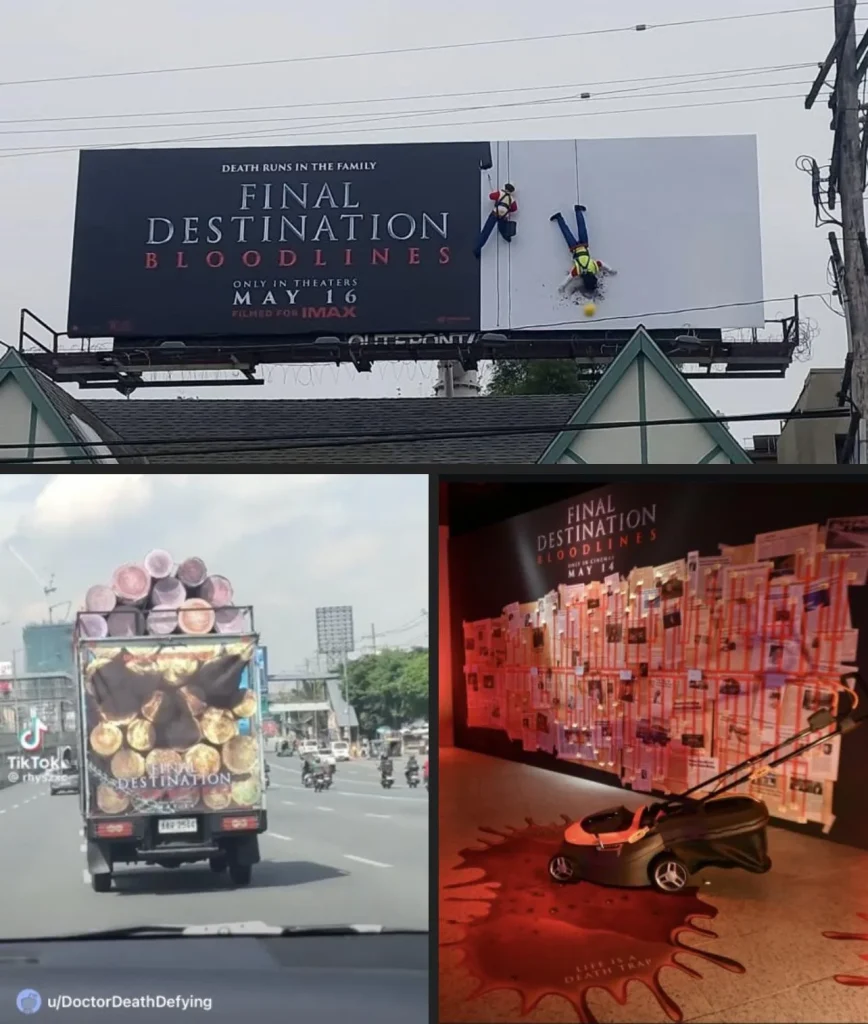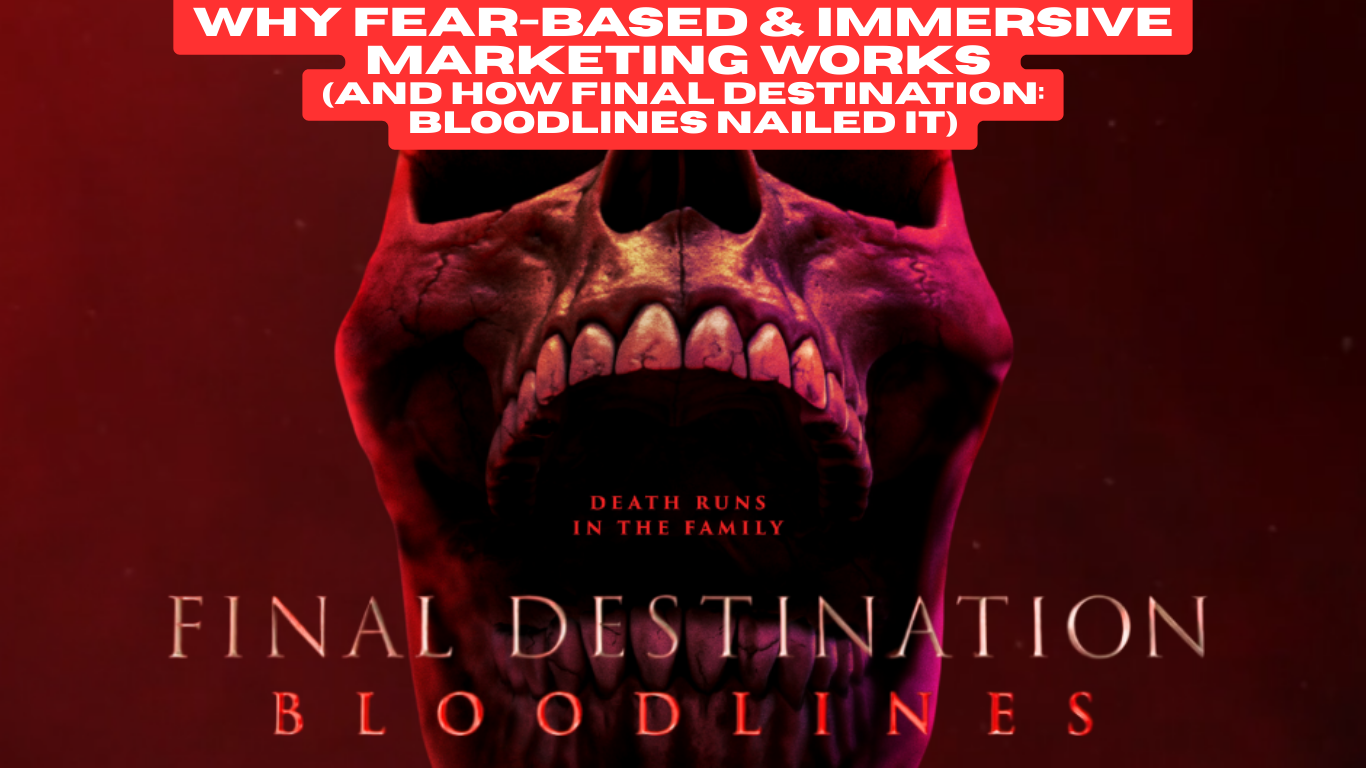The marketing team behind Final Destination: Bloodlines has done something brilliant — they’ve turned a classic horror franchise into a real-life scare fest with their immersive, fear-driven campaign.
From billboards that look like death scenes, to log trucks rolling through cities as walking movie ads, the buzz around this film is growing fast. But what’s really fascinating isn’t just the creativity — it’s the psychology behind why campaigns like this work so well.
Let’s break it down using data, research, and real-world insights.
🔥 The Campaign in Brief
Final Destination: Bloodlines, set for release on May 16, 2025, is leveraging nostalgia, fear, and viral storytelling to generate hype. Some standout tactics include:

- A billboard designed to mimic a fatal accident
- Real-life log trucks referencing the iconic Final Destination 2 scene
- Creative director auditions where applicants faked their own deaths using VFX
Fans are already reacting online, calling the billboards “terrifying” and “perfectly creepy.”
But here’s the real question: why does this kind of marketing work so well?
🧠 5 Psychological Reasons Fear-Based & Immersive Marketing Works
1. Fear Grabs Attention Instantly
Humans are wired to pay attention to threats — even fictional ones. Fear-based advertising activates the amygdala, making messages more memorable.
✅ Research Insight: According to the Journal of Consumer Research, fear-evoking content increases emotional engagement and recall by up to 40%.
2. Nostalgia Builds Emotional Connection
By referencing past films and iconic moments (like the log truck), the campaign taps into long-time fans’ memories and emotions.
✅ Research Insight: A study by the University of Southampton found that nostalgic advertising can increase brand loyalty by 30% and emotional resonance by 50%.
3. Immersive Experiences Are Shareable
When people feel like they’re part of the story — whether through physical installations or social media stunts — they’re more likely to share it.
✅ Research Insight: Nielsen reports that 92% of consumers trust earned media over traditional ads, and immersive experiences often go viral organically.
4. Shock & Surprise Drive Engagement
Unconventional tactics — like fake death scenes in job interviews — create surprise, which triggers dopamine release and makes people want to talk about it.
✅ Research Insight: A Harvard Business Review study found that emotionally charged content (especially surprise and awe) gets shared up to 3x more than neutral content.
5. Behind-the-Scenes Storytelling Humanizes Your Brand
Sharing how the campaign was made — like how directors faked their own deaths — builds transparency and relatability.
✅ Research Insight: 74% of consumers say they’ll support a brand more if they understand its story (Edelman Trust Barometer, 2024).
📈 What This Means for Marketers & Brands
| Tactic | Why It Works | Applicable To |
| Fear-Based Ads | High emotional impact and memorability | Horror, Thriller, Health, Insurance |
| Nostalgic Content | Builds loyalty and emotional connection | Legacy brands, Seasonal campaigns |
| Immersive Installations | Creates shareable, real-world experiences | Events, Product Launches |
| Shock/Surprise Elements | Drives virality and organic reach | Social Media, Influencer Campaigns |
| Behind-the-Scenes Stories | Builds trust and humanizes your brand | Any industry looking to connect authentically |
💡 Our Takeaway
This campaign proves that great marketing doesn’t always need a big budget — it needs emotion, creativity, and timing.
Whether you’re launching a product, promoting a service, or building brand awareness, consider these key strategies:
- Tap into strong emotions — fear, nostalgia, surprise.
- Create experiences people want to share — both offline and online.
- Tell stories that go beyond the screen — make your audience feel involved.
- Use psychological triggers to boost recall and engagement.
If you’re planning a campaign and want help crafting a similar strategy, we’d love to partner with you. At Make Me Notable, we specialize in creating viral-worthy content, strategic PR placements, and data-backed digital campaigns that help brands stand out.
📣 Want Us to Help You Run a Campaign Like This?
We offer:
- Creative campaign development
- Viral press outreach
- Social media content calendars
- Audience behavior analysis
- Online reputation management
👉 Let’s build something unforgettable together. [Contact us today]























